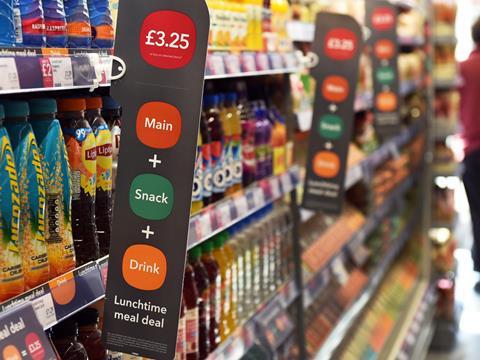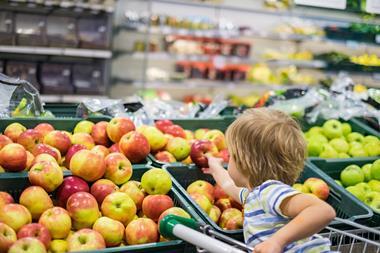
Government inaction has encouraged food companies to slow their efforts on health and sustainability, according to a major report by the Food Foundation published today.
The body’s State of the Nation’s Food Industry 2023 document shows there have been fewer commitments on tackling HFSS, as well as less emphasis on sustainable diets, across the past 12 months.
It says government rowbacks, including the u-turn on HFSS promotions and failure to bring in mandatory reporting on health and carbon emissions, despite plans set out in the government’s response to Henry Dimbleby’s National Food Strategy, have created a climate that discourages companies from moving the agenda forward.
The report, which comes days before world leaders meet in Dubai for the COP28 conference, finds that supermarkets are among those having reduced their level of commitment. The situation is far worse in the out of home sector, meanwhile, where health and eco commitments have been grinding to a halt.
The Food Foundation has called on retailers and other companies to measure and report on three key metrics, the percentage of sales of HFSS foods, the percentage of sales of fruit & vegetables, and the proportion of sales of types of animal and plant produce.
Out of 27 retailers and out of home businesses, just eight companies – Aldi, Asda, Greggs, Lidl, M&S, Sainsbury’s, Tesco and Waitrose – have a target and disclose data for HFSS.
Meanwhile six (Compass Group UK & Ireland, Sodexo, Lidl, Sainsbury’s, Tesco and Waitrose) have a target and disclose data of fruit & vegetables.
No companies disclose information and have targets for both types (animal and plant) of protein sales.
The lack of reporting comes despite Dimbleby recommending a 30% reduction in meat consumption by 2032, and the Climate Change Committee recommending a 35% reduction in meat consumption if the government is to meet its net zero target by 2050.
The report also slams the decision to delay plans for a clampdown on HFSS volume promotions and a clampdown on junk food advertising on TV and online until 2025, as well as rowbacks on the government’s Food Data Transparency Partnership (FDTP), which was announced last year in response to the NFS.
It says the decision to scrap plans for mandatory reporting on health by the group have blunted the public health agenda. The report cites The Grocer’s exclusive story from last month which revealed plans for mandatory targets for major companies on carbon targets had been delayed until after the next election.
“Lack of intervention and regulation from government has had a noticeable impact on business performance this year, with the FDTP being scaled back to make reporting voluntary and its Eco Working Group delaying making any formal announcements on how they will report on carbon targets until 2024, as opposed to ahead of COP28 as previously planned,” says the report.
It says as a result “companies are delaying moving to set new commitments until the government establishes frameworks and metrics and give a clear signal that they are committed to the healthy and sustainable diet agenda”.
“Business transparency has stagnated, with fewer businesses disclosing sales weighted data on health and sustainability than last year,” added The Food Foundation executive director Anna Taylor.
“This negative trend is not being helped by the lack of leadership from government on food, and the fact there is still no agreed way of consistently measuring and reporting the nutrient content and carbon footprint of food.
“Government needs to build business confidence and signal its commitment to the healthy and sustainable diet agenda by making reporting of sales weighted data mandatory.”



















No comments yet